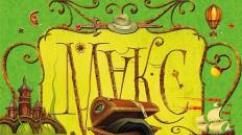Department of Linguistics and Intercultural Communication. Faculty of Foreign Languages and Regional Studies, MSU HSE Program Linguistics and Intercultural Communication
In this case, the cultural barrier is less visible and less conscious, which makes it even more dangerous.
Thus, the reading of foreign literature is inevitably accompanied by an acquaintance with a foreign and foreign country's culture, and a conflict with it. In the process of this conflict, a person begins to become more aware of his own culture, his worldview, his approach to life and to people.
A vivid example of the conflict of cultures in the perception of foreign literature is given by the American anthropologist Laura Bohannen, who retold Shakespeare's Hamlet to the natives of West Africa. They perceived the plot through the prism of their culture: Claudius is a good fellow for marrying his brother's widow, this is what a good, cultured person should do, but it had to be done immediately after the death of her husband and brother, and not wait a whole month. The ghost of Hamlet's father did not fit into consciousness at all: if he is dead, then how can he walk and talk? Polonius aroused disapproval: why did he prevent his daughter from becoming the mistress of the leader's son - this is both an honor and, most importantly, many expensive gifts. Hamlet killed him quite correctly, in full accordance with the hunting culture of the natives: having heard a rustle, he shouted "what, a rat?", but Polonius did not answer, for which he was killed. This is exactly what every hunter in the African bush does: when he hears a rustle, he calls out and, if there is no human response, kills the source of the rustle and, consequently, the danger 15 .
Books banned (or burned at the stake) by one or another political regime clearly (the brighter, the larger the fire) testify to the conflict of ideologies, the incompatibility of cultures (including within one national culture).
In such an explosive situation, complex and noble tasks are acute for science and education: firstly, to explore the roots, manifestations, forms, types, development of cultures of different peoples and their contacts, and, secondly, to teach people tolerance, respect, understanding of other cultures . To accomplish this task, conferences are held, associations of scientists and teachers are created, books are written, cultural disciplines are introduced into the curricula of both secondary and higher educational institutions.
Of particular importance is the solution (or at least awareness) of the problems of intercultural communication for teaching foreign languages.
§ 4. Intercultural communication and the study of foreign languages
The close connection and interdependence of teaching foreign languages and intercultural communication is so obvious that it is hardly necessary to
lengthy explanations.
Each foreign language lesson is a crossroads of cultures, it is the practice of intercultural communication, because each foreign word reflects a foreign world and foreign culture: behind each word there is a national consciousness (again, and strange, if the word foreign) view of the world.
The teaching of foreign languages in Russia is now going through, like all other spheres of social life, the most difficult and difficult period of radical restructuring (not to say revolution), reassessment of values, revision of goals, objectives, methods, materials, etc. It makes no sense to say now about the huge changes in this area, about the boom of public interest, about the explosion of motivation, about the radical change in attitude towards this subject for quite definite socio-historical reasons - this is all too obvious.
New times, new conditions required an immediate and radical revision of both the general methodology and the specific methods and techniques of teaching foreign languages. These new conditions - the “discovery” of Russia, its rapid entry into the world community, the crazy leaps in politics, economics, culture, ideology, the mixing and movement of peoples and languages, the change in relations between Russians and foreigners, completely new goals of communication - all this cannot but pose new problems in the theory and practice of teaching foreign languages.
An unprecedented demand demanded an unprecedented supply. Unexpectedly for themselves, teachers of foreign languages found themselves in the center of public attention: impatient legions of specialists in various fields of science, culture, business, technology and all other areas of human activity demanded immediate teaching of foreign languages as a tool of production. They are not interested in either the theory or the history of the language - foreign languages, primarily English, are required by them exclusively functionally, for use in various spheres of society as a means of real communication with people from other countries.
In the current conditions, in order to meet the socio-historical needs of society, a new faculty was created at the Lomonosov Moscow State University in 1988 - the Faculty of Foreign Languages, which opened a new specialty - "neophilology", which was previously understood in a completely different way and, accordingly, not trained specialists. The main principles of this direction can be formulated as follows:
1) learn languages functionally, in terms of their use in various spheres of society: in science, technology, economics, culture, etc.;
2) to summarize the vast practical and theoretical experience of teaching foreign languages to specialists;
3) scientifically substantiate and develop methods of teaching language as a means of communication between professionals, as a tool of production in combination with culture, economics, law, applied mathematics, various branches of science - with those areas that require the use of foreign languages;
4) to study languages in a synchronous way, against a broad background of the social, cultural, political life of the peoples who speak these languages, that is, in close connection with the world of the language being studied;
5) develop a model for training teachers of foreign languages, specialists in international and intercultural communication, and public relations specialists.
Thus, the motives for learning the language completely changed (the language appeared in a different light, not as an end in itself), and therefore it was necessary to radically restructure the teaching of foreign languages, introduce the specialty "linguistics and intercultural communication" and begin training teachers of a new type.
The main task of teaching foreign languages in Russia at the present time is teaching the language as a real and complete means of communication. The solution of this applied, practical problem is possible only on a fundamental theoretical basis. To create such a base, it is necessary: 1) to apply the results of theoretical works on philology to the practice of teaching foreign languages, 2) to theoretically comprehend and generalize the vast practical experience of foreign language teachers.
The traditional teaching of foreign languages in our country was reduced to reading texts. At the same time, at the level high school philologists were trained on the basis of reading fiction; non-philologists read ("thousands of words") special texts according to their future profession, and the luxury of everyday communication, if there was enough time and enthusiasm for both teachers and students, was represented by the so-called everyday topics: in a hotel, in a restaurant, at the post office, etc.
The study of these famous topics in conditions of complete isolation and the absolute impossibility of really getting to know the world of the language being studied and the practical use of the knowledge gained was a romantic affair at best, useless and even harmful, annoying at worst (the topic “in a restaurant” in conditions of food shortages, "at the bank", "how to rent a car", "travel agency" and the like, which have always been the main content of foreign courses of English as a foreign and domestic, written according to Western models).
Thus, almost exclusively one function of the language was realized -
a function of communication, an informative function, and then in a very narrow form, since of the four language skills (reading, writing, speaking, listening comprehension), only one developed, passive, focused on "recognition" - reading.
This misfortune was widespread and had quite clear reasons and deep roots: communication with other countries and their peoples was also, to put it mildly, narrowed, the country was cut off from the world of Western languages, these languages were taught as dead - Latin and ancient Greek.
Teaching foreign languages on the basis of only written texts reduced the communicative capabilities of the language to a passive ability to understand texts created by someone, but not to create, not to generate speech, and without it, real communication is impossible.
The sudden and radical change in the social life of our country, its "discovery" and rapid entry into the world - primarily Western - community brought languages back to life, made them a real means of various types of communication, the number of which is growing day by day along with the growth of scientific and technical means of communication.
At present, this is precisely why at the level of higher education, teaching a foreign language as a means of communication between specialists different countries we understand it not as a purely applied and narrowly specialized task of teaching physicists the language of physical texts, geologists - geological texts, etc. A university specialist is a well-educated person with fundamental training. Accordingly, a foreign language of a specialist of this kind is both an instrument of production, and a part of culture, and a means of humanizing education. All this assumes a fundamental and versatile training in the language.
The level of knowledge of a foreign language by a student is determined not only by direct contact with his teacher. In order to teach a foreign language as a means of communication, it is necessary to create an environment of real communication, establish a connection between teaching foreign languages and life, and actively use foreign languages in living, natural situations. These can be scientific discussions in the language with the involvement of foreign experts and without it, summarizing and discussing foreign scientific literature, reading individual courses in foreign languages, participation of students in international conferences, work as a translator, which is precisely in communication, contact, ability to understand and convey information. It is necessary to develop extra-curricular forms of communication: clubs, circles, open lectures in foreign languages, scientific societies of interest, where students of various specialties can gather.
So, highly specialized communication through written texts by no means exhausts the knowledge of the language as a means of communication, a means of communication.
The maximum development of communication skills is the main, promising, but very difficult task facing foreign language teachers. To solve it, it is necessary to master both new teaching methods aimed at developing all four types of language proficiency, and fundamentally new teaching materials that can be used to teach people to communicate effectively. At the same time, of course, it would be wrong to rush from one extreme to another and abandon all the old methods: from them it is necessary to carefully select all the best, useful, and tested by teaching practice.
The main answer to the question of solving the actual problem of teaching foreign languages as a means of communication between representatives of different peoples and cultures is that languages should be studied in inseparable unity with the world and culture of the peoples who speak these languages.
Teaching people to communicate (orally and in writing), to teach how to produce, create, and not just understand foreign speech is a difficult task, complicated by the fact that communication is not just a verbal process. Its effectiveness, in addition to knowledge of the language, depends on many factors: the conditions and culture of communication, the rules of etiquette, knowledge of non-verbal forms of expression (facial expressions, gestures), the presence of deep background knowledge, and much more.
Overcoming the language barrier is not enough to ensure effective communication between representatives of different cultures. To do this, you need to overcome the cultural barrier. The following excerpt from an interesting study by I. Yu. Markovina and Yu. the barrier is not the only obstacle to mutual understanding. National-specific features of the most diverse components of cultural communicators (features that make it possible for these components to implement the ethno-differentiating function) can complicate the process of intercultural communication.
The components of culture that carry a nationally specific coloration include at least the following:
a) traditions (or stable elements of culture), as well as customs (defined as traditions in the “socio-normative” sphere of culture) and rituals (performing the function of unconscious familiarization with the normative requirements prevailing in this system);
b) everyday culture, closely related to traditions, as a result of which it is often called traditional-everyday culture;
c) everyday behavior (habits of representatives of a certain culture,
the norms of communication accepted in a certain society), as well as the mimic and pantomimic (kinesic) codes associated with it, used by the carriers of a certain linguocultural community;
d) “national pictures of the world”, reflecting the specifics of the perception of the surrounding world, the national characteristics of the thinking of representatives of a particular culture;
e) artistic culture, reflecting the cultural traditions of a particular ethnic group.
The native speaker of the national language and culture also has specific features. In intercultural communication, it is necessary to take into account the peculiarities of the national character of the communicants, the specifics of their emotional make-up, national-specific features of thinking” 16 .
Under the new conditions, with a new formulation of the problem of teaching foreign languages, it became obvious that a radical increase in the level of teaching communication, communication between people of different nationalities can be achieved only with a clear understanding and real consideration of the sociocultural factor.
Many years of practice of teaching living languages as dead ones has led to the fact that these aspects of the language were in the shadows, remained unclaimed. Thus, there is a significant gap in the teaching of foreign languages.
One of the most important and radical conditions for filling this gap is the expansion and deepening of the role of the sociocultural component in the development of communication skills.
According to E. Sapir, "every cultural system and every single act of social behavior explicitly or implicitly implies communication" 17 .
Thus, we are already talking about the need for a deeper and more thorough study of the world (not the language, but the world) of native speakers, their culture in the broad ethnographic sense of the word, their way of life, national character, mentality, etc., because the actual use of words in speech, the actual speech production, is largely determined by the knowledge of the social and cultural life of the speech community speaking the given language. "Language does not exist outside of culture, that is, outside of the socially inherited set of practical skills and ideas that characterize our way of life" 18 . At the heart of linguistic structures are socio-cultural structures..
Knowing the meanings of words and the rules of grammar is clearly not enough to actively use the language as a means of communication. It is necessary to know as deeply as possible the world of the language being studied.
In other words, in addition to the meanings of words and grammar rules, you need to know: 1)
when to say / write, how, to whom, with whom, where; 2) as a given meaning/concept,
this subject of thought lives in the reality of the world of the language being studied. That is why at present, in the curriculum of the Faculty of Foreign Languages of Moscow State University, a third of the time devoted to the study of foreign languages is assigned to a new subject introduced by us: "the world of the language being studied." This term-concept already borrowed by many educational institutions in Russia.
How do such concepts as sociolinguistics, linguo-cultural studies and the world of the language being studied correlate with each other?
Sociolinguistics- this is a section of linguistics that studies the conditionality of linguistic phenomena and language units by social factors: on the one hand, the conditions of communication (time, place, participants, goals, etc.), on the other hand, customs, traditions, features of the public and cultural life of the speaker team.
Linguistics is a didactic analogue of sociolinguistics, developing the idea of the need to merge teaching a foreign language as a set of forms of expression with the study of the social and cultural life of native speakers.
E. M. Vereshchagin and V. G. Kostomarov, the fathers of linguistic and regional studies in Russia, formulated this most important aspect of language teaching as follows: “Two national cultures never completely coincide, this follows from the fact that each consists of national and international elements. The sets of coinciding (international) and divergent (national) units for each pair of compared cultures will be different ... Therefore, it is not surprising that one has to spend time and energy on mastering not only the plan of expression of a certain linguistic phenomenon, but also the plan of content, i.e. it is necessary to develop in the minds of students the concepts of new objects and phenomena that do not find analogies either in their native culture or in their native language. Consequently, we are talking about the inclusion of elements of country studies in language teaching, but this inclusion is of a qualitatively different kind compared to general country studies. Since we are talking about the combination of language and information from the sphere of national culture in the educational process, this type of teaching work is proposed to be called linguistic and cultural teaching” 19 .
The world of the language being studied as a discipline inextricably linked with the teaching of foreign languages, it is focused on the study of the totality of non-linguistic facts (unlike the two previous concepts), that is, those socio-cultural structures and units that underlie the language ko vy s structures and units and are reflected in these latter.
In other words, the basis of the scientific discipline "the world of the studied language" is the study sociocultural picture of the world, reflected in language
picture of the world.
The picture of the world surrounding native speakers is not just reflected in the language, it also forms the language and its native speaker, and determines the features of speech usage. That is why without knowledge of the world of the language being studied, it is impossible to study the language as a means of communication. It can be studied as a piggy bank, a way of storing and transmitting culture, that is, as a dead language. A living language lives in the world of its speakers, and studying it without knowledge of this world (without what is called differently in different scientific schools: background knowledge, vertical context, etc.) turns a living language into a dead one, that is, deprives the student of the opportunity to use this language as a means of communication. This, apparently, explains all the failures with artificial languages. Even the most famous of them - Esperanto - does not spread and is doomed to die, primarily because there is no life-giving soil behind it - the carrier's culture.
The relationship between cultural linguistics and the above-mentioned (§ 2) cultural linguistics is explained by Professor V. V. Vorobyov, a specialist in teaching Russian as a foreign language, who intensively develops the ideas of cultural linguistics: important for a number of reasons, primarily because the ever-increasing interest in the problem of “Language and Culture” makes it imperative to clarify the sources, parameters, research methods, concepts included in its scope of terminological inventory. The appeal to linguoculturology is not a change to the already traditional linguo-cultural aspect of teaching the Russian language, the methodological sound of the idea of which we accept, but is caused and conditioned, first of all, by the urgent needs and reassessment of some linguo-methodological values of the problem “Language and culture” 20 .
The study of the world of native speakers is aimed at helping to understand the features of speech usage, additional semantic loads, political, cultural, historical and similar connotations of units of language and speech. Particular attention is paid to the realities, since a deep knowledge of the realities is necessary for a correct understanding of the phenomena and facts related to the everyday reality of the peoples who speak this language.
The basis of any communication, that is, the basis of verbal communication as such, is a “mutual code” (shared code), mutual knowledge of the realities, knowledge of the subject of communication between the participants in communication: the speaker/writer and the listener/reader.
All the threads-strings of the special resettlement tights stretched to the village office.
The Alexander drilling office accepted him willingly into their militant staff. A specialty with a young man, from the locals, and in addition a Russian German of exiled blood.
Not ordinary work flowed, business was seething, illuminated by the light of those primeval years, which to this day plays with highlights on the crystals of a proud biography ...
But shift machine operators from Tomsk, Novosibirsk, Yurga are ironworking professionals, people of precise craftsmanship, because high precision in the processing of parts on a “loose” machine flotilla can be achieved only if the makings of a Lesk craftsman Levsha 21 .
In order to understand the linguistic facts of this passage from the essay (not a work of art with its authorial liberties and focus on the function of influence), one needs knowledge of the realities, the sociocultural background, otherwise understanding the text is difficult, and hence communication.
How to understand special resettlement life, what is a drilling office and why does it have a militant staff, what are the sociocultural characteristics of a Russian German in general and exiles in particular, how does extraordinary work differ from ordinary work, what kind of light of virgin years is it, why is a biography proud, what does it mean machine workers and shift workers, why is a machine flotilla, and even lax? Finally, without knowledge of Leskov's story "Lefty" it is impossible to understand what kind of people these machine operators are. To answer these questions, it is necessary to know history, literature, lifestyle, value system and many other socio-cultural aspects, without which simply knowing the “meanings” of the words of the native language, not to mention Russian as a foreign language, will not help communication much. At the same time, in this text, unlike the neighboring ones in the same journal, there were no Sovietisms of the type kulstan (cultural camp) or such local Siberian words as chaldon, winter road, gnat.
To understand the meaning of the following passage from the story of D. H. Lawrence, you need to have extensive background knowledge: to know what is included in the concept of a “feminine woman” in a given society, to be able to understand literary and biblical allusions (conditionality of the culture of a given speaking group):
He imagined to himself some really womanly woman, to whom he should be only fine and strong, and not for a moment "the poor little man". Why not some simple uneducated girl , some Tess of the D "Urbervilles , some wistful Gretchen , some humble Ruth gleaning an aftermath? Why not? Surely the world was full of such (Emphasis mine. - S. T.) *. * He really imagined feminine woman, for which he would always be only beautiful and strong, and not at all a "poor little man." Why not some simple, uneducated girl, some Tess of the D'Urbervilles, some languid Gretchen or modest Ruth, gathering ears? Why not? Surely the world is full of them.
Thus, facts are reflected in linguistic phenomena. public life of this speaking community. The tasks of teaching a foreign language as a means of communication are inextricably merged with the tasks of studying the social and cultural life of countries and
The Department of Linguistics and Intercultural Communication (LiMKK) brings together students who have decided to connect their lives with a comprehensive study of the main European languages: English, German, French, Spanish, Italian or one of Slavic languages(Czech, Polish, Bulgarian, Serbian).
The Department of Linguistics and Intercultural Communication conducts training in the field of study "Linguistics", within the framework of this direction, training is carried out in two profiles:
- Theory and Methods of Teaching Foreign Languages and Cultures
- Theory and practice of intercultural communication
Training program:
Integrated Master - 6 years (Bachelor 4 years + Master 2 years).
The form of education is full-time, full-time.
Training is conducted both on a budgetary (free) and contractual (paid) basis.
Head of the Department - Doctor of Philology, Professor, Honored Worker of the Higher School of the Russian Federation, Lomonosov Prize Laureate Molchanova Galina Georgievna.
The faculty prepares teachers of foreign languages who have both theoretical and practical knowledge and skills in the field of teaching foreign languages and cultures. Along with theoretical courses in pedagogy, psychology, teaching methods, students undergo compulsory teaching practice at other faculties of Moscow State University, at other universities in Moscow and in Moscow schools.
The study of intercultural communication as a specialty is now experiencing an undoubted rise all over the world, which can be observed in a wide range of humanities, from linguistics and methods of teaching foreign languages to management theory. According to some scientists, it even becomes "the most important topic of the social sciences", "the question of the survival of our biological species."
The high demand for the profile "Theory and Practice of Intercultural Communication" is due precisely to the fact that it, based on a combination of linguistics and communication, a foreign language and communication, involves linguistic research"human factor" in order to analyze how a person - a representative of a certain culture and mentality - uses language as a means of communication and interethnic, intercultural communication. Since the goal of teaching a foreign language is to form a multicultural personality who is equally well versed in knowledge of both foreign and native cultures, it is not cognition as an element of thinking that comes to the fore, but mutual understanding based on cognition. This stimulates the emergence of studies of interaction along the lines of language - culture - personality, contributing to the formation of a "personality at the turn of cultures", able to compare, and not oppose, generalize, and not divide. The future belongs to such a person, who is characterized by a complex interaction of the universal and national in the multicultural mechanism of the value perception of the world, knowledge and understanding of the intercultural communicative aspects of the language, which ensure successful communication.
Academic plan
The scope of theoretical courses, research, workshops is wide and includes such disciplines as "Fundamentals of Linguistics", "General Linguistics", "Language and Intercultural Communication", "Introduction to the Theory of Intercultural Communication", "Semiotics in Intercultural Communication", "Pedagogical Anthropology" ”, “Functional stylistics and literary editing”, “Ancient languages”, “Professional aspects of language activity”.
In addition to the theoretical base, grouped from the disciplines of this profile, the department pays great attention (and the number of hours) to the "Practice on Intercultural Communication" in English.
A specialist in intercultural communication, a representative of new professions in government, commercial and public structures, must not only have a good theoretical background, but also practical skills in communicating with representatives of different cultures in various fields of activity (political, economic, social, cultural, scientific, etc.). ).
The research work of the students of the department, specializing in the profile "Theory and Methods of Teaching Foreign Languages and Cultures", is carried out within the framework of two priority areas of scientific research of the faculty:informatization of humanitarian (linguistic) education(prof. Nazarenko A.L.), l linguistics and intercultural communication (prof. Molchanova G.G.), linguodidactics and language policy(prof. Vishnyakova O.D.), m Methodology, methodology and technology of preparing students for intercultural communication in co-studied languages in the context of the competence-based paradigm of university language education (Prof. Safonova V.V.), P translation and translation studies (prof. Polubichenko L.V.), R Regional Studies and International Relations (Prof. Pavlovskaya A.V.), t Theory and history of culture(prof. Mokletsova I.V.).
Benefits of Education
The program is aimed at training highly qualified practitioners in the field of intercultural communication with a deep knowledge of English, as well as Chinese or Spanish who will be able to confidently navigate in the field of organization management in the context of global integration of business processes. Graduates of the program have professional competencies both in the field of business and management, and in the field of translation and interpretation.
Graduates are able to:
- conduct professional intercultural communication in the field of business and management
- carry out translation activities in the field of business and management
- use modern information technologies and automated translation tools for intercultural communication
- organize, promote and manage events (business meetings, negotiations, etc.)
- successfully implement knowledge about the activities and structure of international organizations, diplomatic and consular missions, chambers of commerce
- create, edit and proofread bilingual documentation
- provide consulting services and operational assistance on such management issues as documentary support for planning and production control processes
- conduct scientific and educational and research activities
Notable teachers
- S. Yu. Rubtsova - Candidate of Philology, Associate Professor, Dean of the Faculty of Foreign Languages, translator from English and Dutch, authoritative translator of the Nederlands Literair Product ie-en-Vertalingenfond, author of textbooks and programs, author of more than seventy publications, member of the Union Russian translators, member of the International Association of Legal English Teachers EULETA, member of the editorial board of the international journal Journal of teaching English for Specific and academic purposes (European legal English teachers association)
- S. F. Sutyrin - Doctor of Economics, Professor, Head of the Department of World Economy. Honored Worker of Higher Education Russian Federation, medal "In memory of the 300th anniversary of St. Petersburg", medal of the Order "For Merit to the Fatherland", II degree
- L. L. Timofeeva - PhD in Philology, Associate Professor of the Department of Foreign Languages in Economics and Law, current translator (consecutive and simultaneous interpretation), 2004–2012 - accompanying the Open World Program at the Library of Congress. Research interests: translation studies, interpretation, simultaneous and consecutive translation, artistic interest
- T. E. Dobrova - Candidate of Philology, Associate Professor of the Department of Foreign Languages in the Field of International Relations, author of more than 30 publications. Research interests: intercultural communication, intercultural professional discourse
- M. N. Morozova - Candidate of Philology, Associate Professor of the Department of Foreign Languages in Economics and Law, author of more than 20 publications. Research interests: translation studies, professionally oriented translation, lexicology
- A. A. Karazia is a candidate of philological sciences, an acting simultaneous interpreter, since 2012 a personal translator of the governor of St. Petersburg. Research interests: translation studies, methods of teaching interpretation
Main areas of research
- Theory and practice of translation
- Intercultural communication
- Conflict theory
- Automatic translation systems
- Educational technologies
- Methodology and practice of teaching translation
Practice and future career
Training involves the passage of translation practice in the leading translation companies of St. Petersburg, including:
- EGO Translating Company LLC
- OOO "Literra"
Graduates are ready for professional activities as:
- specialist in the field of translation and interpretation in the field of business and management with knowledge of computer-aided translation systems and post-editing skills in machine translation
- manager in the field of language business (management of translation projects, project teams, translation departments)
- foreign client manager
- specialist in organizational and documentary support of organization management
- teacher of vocational training, vocational education and additional professional education
Graduates are ready to work in international organizations, translation companies, etc.













